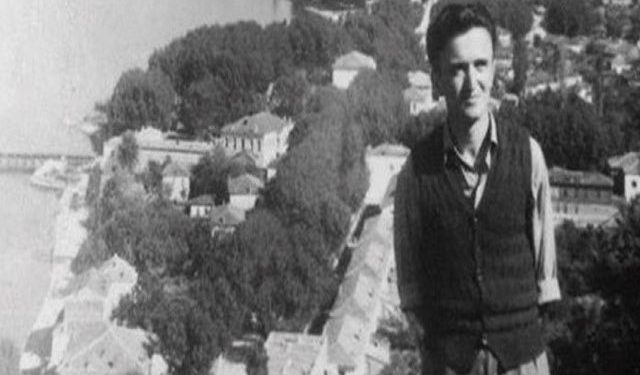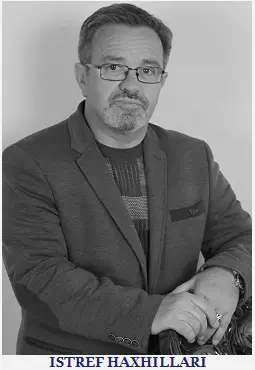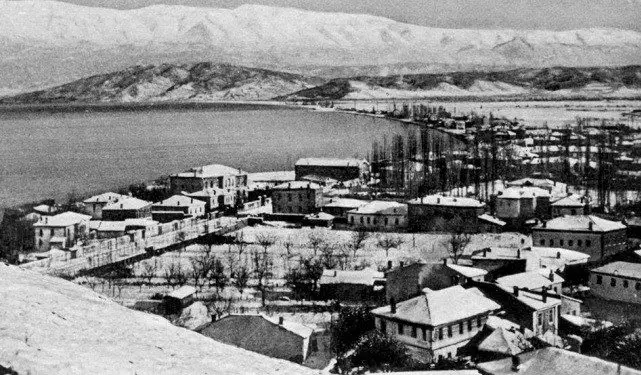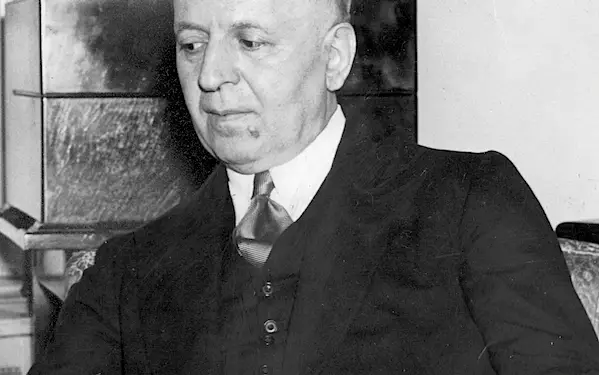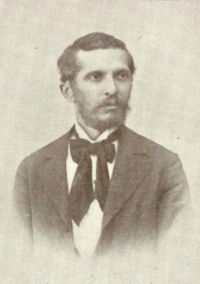From Istref Haxhillari
Memorie.al / My generation considers professor Qani Çollaku, a phenomenon that passed quietly, without fuss and noise, in the cultural life of the city of Pogradec, filled with cruel names, such as; Gjergj Pekmezi, Lazgush Poradeci, Mitrush Kuteli and others. But how can we explain the fact that, although he did not leave anything written, he did not publish a single article in the press of the time, he remains indisputably, a consolidated figure of post-Gradecar civic culture?! To answer this question, I think that this comparison can be made in miniature: Faik Konica is known, not so much for his writings, which of course have their value, but for the fact that he brought to Albanian, as we know them today, the great renaissance; Naim Frashëri, Çajupi and others. In the same way, Qaniu discovered through literature classes, the poetic universe of Lasgush Poradec, the miracle of Kutel’s stories, the immense Russian space of Dostoevsky, Chekhov, Gogol and others.
This is how he challenged the literary mediocrity of the time:
In the anthology of Albanian literature of our high school, Lasgush Poradeci was represented with three poems summarized in two pages, while a poet of no value was represented with ten pages and was developed in four lessons, compared to the one hour Poradeci’s poetry was developed. But thanks to the professor of literature, this ratio turned into five to zero, in the other direction. This is how he began a literature lesson: “Sunset over the boundless Liquor/ A fabric is slowly spreading like a shadow… etc” Reciting, he kept the musical rhythm of the verse and, with his eyes set, created a heavenly atmosphere, where nothing existed but the amazing nature of the fabulous lake. We forgot ourselves listening to it, we were sorry when it ended and we were surprised, how we didn’t see this beauty, that we had so close. The bell rang and the spell ended. The professor would return to real life as if scared and tell us:
– “Open the books from the page so far, you have the lesson of the day”. When we started studying, we first opened the literature book where we were surprised to read the name of another poet and other poems. The magic was gone, the verses had no music in them. Professor Qaniu discovered the poetic universe of Lasgushi, before a generation thirsty for knowledge that thirstily absorbed every magical verse written by him. We did not know that the poet, with whom we had fallen in love, more than the girls at school, was alive. In our minds, it was identified with extraordinary mythological beings, who know how to do magic and hypnotize people.
At that time, our high school had a qualified and authoritative teaching staff, with real professionals. My classmates must remember with respect and nostalgia, besides Qani, also Petro Prifti, from our city, Dhanil Stefani and Gjergji Merlika, from Korça, Theodhor Duni from Tirana, Rruzhdi Cerloi, from Durrës. I mention them with respect for the knowledge they gave us and the methods they used, the love with which they surrounded us and the friendship, as if we were their friends. From the point of view of today’s time, I understand very well their difficulty, against the ideological pressure of the time. They were required that every subject be permeated by philosophy and politics. And they, masters of mathematics, chemistry, physics, literature, were forced to find the points of contact of scientific disciplines with this philosophy. Tribulation, as difficult as it is futile and meaningles.
The result of all this effort was an abominable conformism, but necessary to survive and work in education, therefore they adapted anyway to the theoretical thinking of the time. We were all forced to apply this type of conformism, in the later years when we worked in education as teachers, in most cases without realizing the absurdity that it carried with it. But Qani Çollaku was cooked from a different dough, it was a different nature. His revolt against the philosophy of the time was quite natural and sincere, argued with admirable clarity. Reasoning came from his whole being, pure and simple, without any prejudice, like a child. At the next meeting of the pedagogical council of the high school, a report was held, the essence of which was that the entire teaching process should be permeated by the philosophy and political thought of the day. Teachers had to go over texts that were considered outdated. In addition to teachers, representatives from students and the community of parents participated in this forum. Judging from today’s positions, there is no doubt that the texts, although literal translations from Russian, used for hundreds of years in Russian gymnasiums, were much better than those that were revolutionized later, reform after reform, even with those used today, when there is no censorship. I compare a physics book from that time with the one we use today and I wonder how those who have this work in hand do not understand the absurd change in the negative direction of these texts? The discussions were in the same spirit (who cares to say otherwise), uniform, colorless, forced arguments, to be in order with the ideological background. Qaniu was sitting on the last bench with me, (representative of the third class C, where he was a caretaker teacher). The internal revolt was clearly understood from the attitude, the movements, the constant nervous tic that was added to him in cases of nervousness. When one of the teachers, whom he valued for his rational judgments and personality, took the floor and was speaking at the same frequency as dictated by the meeting, Qaniu stood up impetuously, without taking permission, interrupted his colleague (this was completely outside the culture of his). – “Dear colleagues, – he said, – I think it is our duty to teach these students mathematics, literature, chemistry, physics first and, after forming their personalities, let them become communists if they want to “. He hurried out of the classroom without saying a word. The meeting broke up. His words, bolt in the open sky, left behind surprise, confusion, opposition and even silent approval from most of the professors of the school. We did not understand many things then, but time showed that those words were the prologue of the ordeal of endless suffering of that man, who for us was and remains a model of simplicity, intelligence, erudition and an extraordinary personality. Memorie.al




